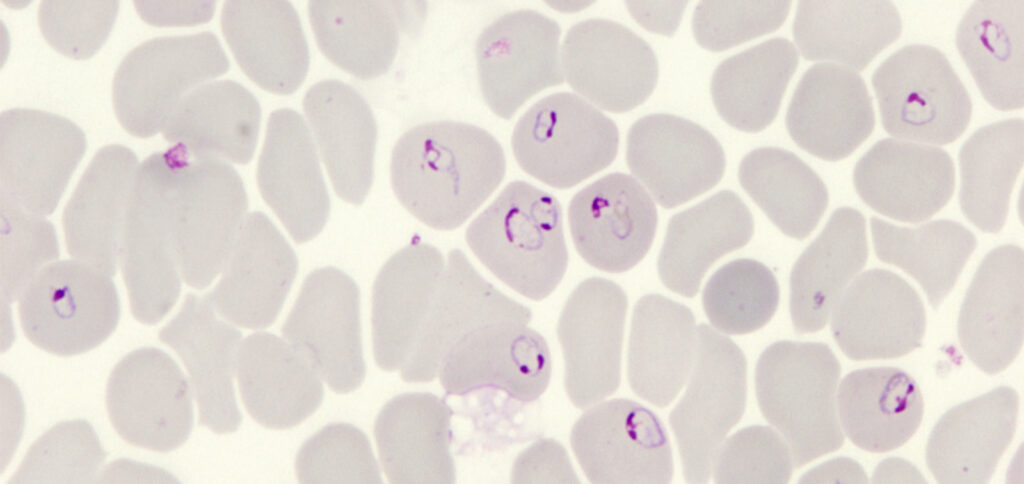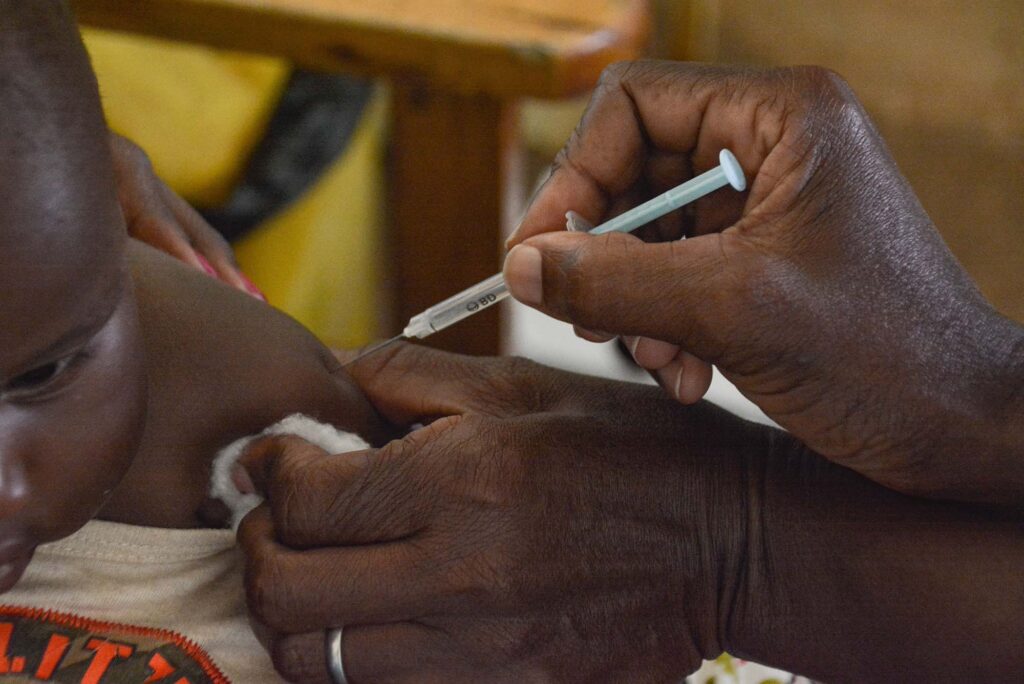For centuries, malaria has plagued humanity, casting a deadly shadow over vast swathes of the globe. This mosquito-borne parasite, transmitted through Plasmodium falciparum, continues to be a public health crisis, claiming over 600,000 lives annually, primarily in Sub-Saharan Africa. But amidst the devastation, a ray of hope has emerged: the first-ever malaria vaccine.

malaria parasite under the microscope
A Long and Winding Road:
Developing a vaccine against malaria has been a complex and arduous journey. The parasite’s intricate lifecycle, characterized by multiple stages within both the mosquito and human host, proved a formidable challenge for scientists. Decades of research and countless roadblocks later, RTS,S, also known by the brand name Mosquirix, finally emerged as a beacon of hope.
How Does it Work?
RTS,S targets the sporozoites, a specific stage of the parasite that enters the human bloodstream after a mosquito bite. The vaccine triggers the immune system to produce antibodies that recognize and neutralize these sporozoites, preventing them from infecting liver cells and initiating the malaria cycle.
Impact and the Road Ahead:
While not a silver bullet, RTS,S offers significant protection, reducing severe malaria cases in young children by around 30%. In 2021, the World Health Organization recommended its widespread use in regions with moderate to high malaria transmission. Over 2 million children have already been vaccinated in pilot programs across Ghana, Kenya, and Malawi, saving countless lives and offering families a brighter future.

a child getting malaria vaccine
The rollout of RTS,S marks a historic milestone in the fight against malaria. However, there’s still much work to be done. Continued research and development are crucial to improve the vaccine’s efficacy and reach more vulnerable populations. Additionally, scaling up production and ensuring equitable access, particularly in resource-limited settings, remain significant challenges.
A Cause for Celebration:
The first malaria vaccine represents a triumph of human ingenuity and perseverance in the face of a formidable foe. It’s a testament to the unwavering commitment of scientists, researchers, and public health professionals who have dedicated their lives to saving lives from this deadly disease. While the journey to eradicate malaria is far from over, RTS,S offers a powerful weapon in our arsenal, bringing us closer to a future where children can sleep soundly, free from the fear of this crippling disease.
Let’s celebrate this landmark achievement and stand united in our efforts to make malaria a thing of the past. Every shot delivered, every life saved, brings us closer to a healthier, brighter future for all.
Here are some ways you can contribute to the fight against malaria:
- Support organizations working on malaria research and prevention programs.
- Raise awareness about the disease and the importance of vaccination.
- Advocate for equitable access to healthcare and essential resources in malaria-affected regions.
Together, we can ensure that the promise of the first malaria vaccine translates into a healthier world for everyone.

